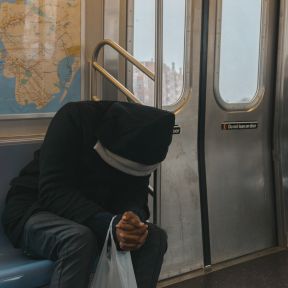MENTAL HEALTH STIGMA- To Be Heard and Seen. The stigma of interpersonal invisibility.

KEY POINTS-
- Stigmatized people often feel invisible in society.
- Everyone wants basic respect and understanding.
- Simple everyday acts of empathy and respect toward others are possible all around us, every day.
It is no surprise that humans are social creatures. Evolutionarily, humans found that they were more likely to survive in groups, sharing food and skills. There is also evidence that we have evolved to desire groups for our psychological and physiological well-being. We desire friendship, companionship, and romantic relationships for myriad psychological needs. When we are isolated and lonely, research shows tremendous negative impacts on our physical and mental health (Cacioppo & Patrick, 2008; U.S. Surgeon General, 2023).

So people have a strong desire to be with others. But, more than that, within those relationships, they want to feel like they are respected and understood. People express this as a desire to be “seen, and heard.” Everyone wants basic respect and understanding, and when it is not given, a person can feel self-doubt and insecurity, lower self-esteem, and also depression, anxiety, or anger.
Representational and Interpersonal Invisibility
In 2019, Rebecca Neel and Bethany Lassetter published a fascinating theory in the prestigious journal Psychological Review. They outlined the psychological and relational consequences of “invisibility.” This is a stigmatizing condition comprised of two types: "representational invisibility," whereby one believes their ingroup (any group to which they belong—such as those based on race, age, gender, sexual orientation, and so on) is not fully represented in society, their workplace, or other aspect of their life. The other, "interpersonal invisibility," denotes the stigma of being deemed irrelevant, unimportant, or otherwise not worthy of social engagement or attention from others. The researchers detail in their paper myriad predictions about how such “invisible” persons might interact with others who are so dismissive, or who appear to not even acknowledge the person’s existence.
What do we do when the dismissive people are in positions of power over the ignored person? Fiske (1993) wrote an influential paper describing how powerful people don’t think about the less powerful (e.g., How often does a CEO of a company think about the work-life details of those workers at the bottom of the company hierarchy, such as those in the mailroom?), and if they do, it is often via broad stereotypes. These are the frustrations that are faced by those in a variety of stigmatized groups. Michael and I recently published a book about the experiences of stigmatized persons (Nelson & Olson, 2023).
While much research exists on prejudice and stereotyping, the reason I bring this paper into the fore is to highlight the importance of this theory in pointing to the need for more research on the interpersonal invisibility experienced by stigmatized people. How does this influence their self-concept, self-esteem, motivation, confidence, and views about their social relationships? Are stigmatized people more likely to experience loneliness as a result of feeling interpersonally invisible? That is, if I feel like the world doesn’t acknowledge or respect me, I may be less inclined to try to reach out and engage with others. As a consequence, I may feel more isolated and lonely, which, in turn, may make me more depressed, or anxious, and even less likely to connect with others…and it continues in an awful circle.
Interactions in Daily Life
In addition to the need for more research attention, this perspective hopefully can shape how you in your daily life interact with others. Or to initiate an interaction with others whom you might otherwise have previously avoided. That little voice in your mind that you hear when you drive by a homeless person—next time, instead of driving by, stop to help them in some way (money, food, water….whatever suits you). The older person at the bus stop who sits alone every day—next time, ask them about their day. There are multiple opportunities all around you in your daily life to make a potentially huge difference simply by engaging with the person in a meaningful way. In so doing, you are saying something so important: “I see you. I hear you.”
- Questions and Answers
- Opinion
- Motivational and Inspiring Story
- Technology
- True & Inspiring Quotes
- Live and Let live
- Focus
- Geopolitics
- Military-Arms/Equipment
- Sicherheit
- Economy/Economic
- Art
- Causes
- Crafts
- Dance
- Drinks
- Film/Movie
- Fitness
- Food
- Spiele
- Gardening
- Health
- Startseite
- Literature
- Music
- Networking
- Andere
- Party
- Religion
- Shopping
- Sports
- Theater
- Health and Wellness
- News
- Culture

